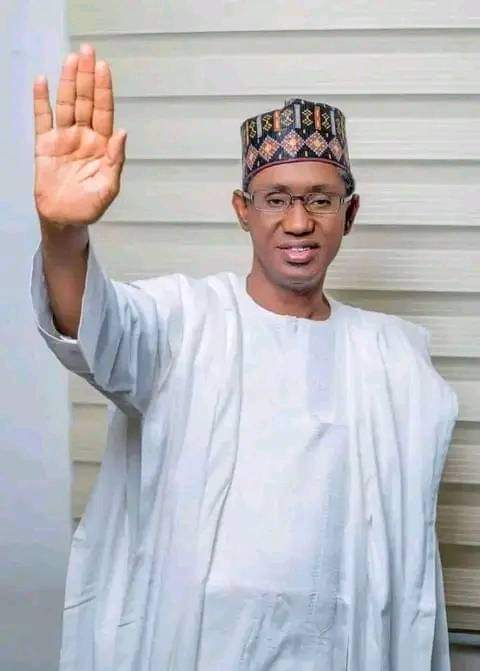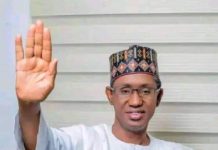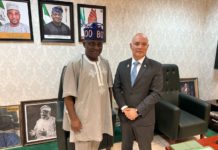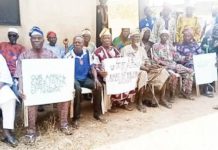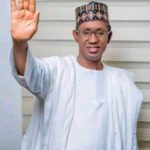Nigeria’s Silent Guardian: Nuhu Ribadu’s No-Nonsense Approach Reshaping Security Landscape
By Tom Garba
Remember those endless nights when the news was just a grim tally of abductions, bombings, and bandit raids? When traveling northern highways felt like rolling the dice with your life, or when Niger Delta communities simmered in resentment over spilled oil and broken promises?
Yeah, those days feel like a fading nightmare now. And at the heart of this turnaround is Mallam Nuhu Ribadu, Nigeria’s National Security Adviser, whose no-nonsense approach has turned the tide in ways that have folks across the country breathing a little easier. It’s not hype—it’s happening, and it’s real.
Just two years ago, under President Bola Ahmed Tinubu’s Renewed Hope Agenda, Ribadu stepped into the NSA role in June 2023.
A former EFCC boss with a reputation for taking down the untouchables, he wasn’t your typical suit-and-tie strategist. No, Ribadu hit the ground running, blending old-school grit with cutting-edge tech to knit together a fractured security web.
Related news
Ribadu community leaders hail NSA over high impact projects
PENGASSAN VS Dangote: Tinubu’s utility player, Ribadu scores another goal
Double garlands for our gallant NSA
“Security isn’t just about guns and checkpoints,” he once told a room full of skeptical journalists. “It’s about smart coordination, community trust, and hitting threats before they hit us.” And boy, has that paid off.
Let’s talk numbers, because they don’t lie. Ribadu himself dropped a bombshell in April this year during a briefing in Jos, Plateau State: Over 90% improvement in security nationwide since Tinubu took office.
Skeptics raised eyebrows fair enough, in a country scarred by empty promises but the statistics back him up. From 2022 to 2025, Nigerian forces neutralized more than 8,034 terrorists across the northeast, northwest, and north-central zones.
That’s not abstract; that’s lives saved, villages reclaimed. In the kidnap game, where fear used to rule, we’ve clocked an 80% success rate in rescues and disruptions.
Kidnapping incidents dipped 16.3% in 2024 alone compared to the year before. Ribadu’s brainchild, the Multi-Agency Anti-Kidnap Fusion Cell, has been a game-changer, pulling together intel from police, DSS, and even international partners to swoop in before panic sets in.
Up north, where bandits once turned schools into ransom factories, mass abductions of students have ground to a halt. Highways that were no-go zones? Now they’re buzzing with traders and travelers.
Senator Shehu Sani put it bluntly on X: “Nuhu Ribadu has achieved what many predecessors failed to nneutralizing top bandit leaders, securing rail lines, and ending kidnappings on major northern roads.”
Take Halilu Sububu and Buharin Yadi, notorious terror bosses who terrorized Katsina, Zamfara, and Niger states. Under Ribadu’s coordination, they were taken out, their networks crumbling like sandcastles.
And it’s not just eliminations 15,000 terrorists neutralized, 124,408 surrenders, and 11,118 weapons recovered. In September 2024, the National Centre for the Control of Small Arms and Light Weapons torched 30,132 recovered firearms. That’s firepower that won’t claim another innocent life.
Down in the Niger Delta, Ribadu’s magic has been economic sorcery. Crude oil production? It’s soared to 1.8 million barrels per day in 2025, up from scraping below a million pre-2023.
Operation Delta Safe dismantled 1,978 illegal refineries, choking off the thieves who bled the nation’s wallet. But it’s more than barrels it’s reconciliation.
In September, Ribadu spearheaded the Ogoni re-entry, a historic handshake after decades of pain from the 1995 executions and spills. NNPC Ltd is back, but with a human face: community funds, road upgrades, and youth jobs to heal old wounds.
“This isn’t just about oil,” Ribadu said at the handover. “It’s about justice and hope.” President Tinubu called it a “beacon of reconciliation,” crediting Ribadu’s committee for threading the needle on dialogue.
Even the shadowy world of cyber threats hasn’t escaped his radar. At the inaugural National Cybersecurity Conference in July, Ribadu hammered home that a “resilient cyberspace is our economic backbone.”
He’s pushed for tech integration drones, AI surveillance, and fusion cells that make old-school ops look prehistoric. In the southeast, over 40 police stations razed by separatists?
Rebuilt and buzzing again. And that Binance bust in March 2024? Ribadu’s team nabbed execs for naira manipulation, sending a global message: Play fair or pay.
Of course, it’s not all roses. The Lakurawa group’s flicker in the northwest and pipeline saboteurs tested resolve in 2024.
But Ribadu’s response? Double down on unity. In his New Year’s message, he thanked the armed forces, intel crews, and everyday Nigerians for the wins, vowing enhanced ops in 2025.
“Our collective vigilance is the real weapon,” he said, a nod to the hunters and vigilantes now looped into the big picture.
What makes Ribadu tick? It’s that blend of humility and hustle. A devout Muslim from Adamawa, he credits Tinubu’s “unwavering political will” but rolls up his sleeves with the troops.
Former Adamawa commissioner Ahmad Sajoh nailed it in a recent clip: “Ribadu’s enhanced intel sharing and synergy have delivered breakthroughs like the Ansaru kingpins’ arrests.” It’s a three-pillar playbook: Squeeze intel from captures, starve terrorists of PR oxygen, and team up with US/UK allies.
As October’s sun sets on Abuja’s bustling streets, you can feel the shift. Markets hum without that undercurrent of dread. Parents send kids to school without knots in their stomachs.
Ribadu’s not promising a utopia, he’s delivering steps toward one. With 2025 on the horizon, his fusion cells, tech upgrades, and community buys-in signal more to come. Nigeria’s not just surviving insecurity; under this watch, we’re outsmarting it. And damn, does that feel good.



